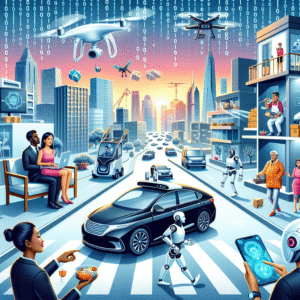Artificial Intelligence (AI) has become an integral part of modern society, revolutionizing various industries and changing the way we live and work. From virtual assistants to self-driving cars, AI has made significant advancements in recent years, and its impact is only expected to grow in the future.
One of the key areas where AI has made a significant impact is in healthcare. AI-powered systems are being used to analyze medical data, assist in diagnostics, and even develop personalized treatment plans for patients. This has the potential to improve patient outcomes and reduce healthcare costs, making it a game-changer for the industry.
In addition to healthcare, AI has also transformed the way businesses operate. From automating routine tasks to predicting consumer behavior, AI has enabled companies to streamline their operations and make data-driven decisions. This has led to increased efficiency and productivity, ultimately driving business growth and innovation.
Furthermore, AI has also revolutionized the way we interact with technology. Virtual assistants such as Siri and Alexa have become a common part of our daily lives, helping us with tasks such as setting reminders, answering questions, and controlling smart home devices. Additionally, AI-powered chatbots have enhanced customer service experiences by providing instant and personalized support to users.
As AI continues to advance, it is crucial for society to address the ethical and societal implications of this technology. From concerns about job displacement to issues of privacy and bias, there are important conversations that need to be had. However, when harnessed responsibly, AI has the potential to drive positive change and improve the quality of life for people around the world.






